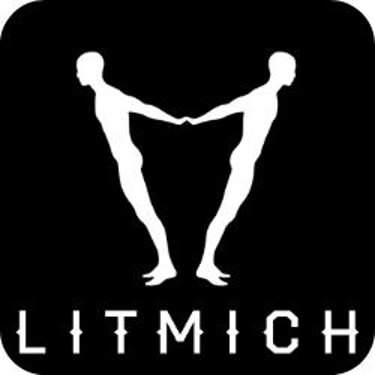lIFE IS TOUGH MAKE IT CHILLABLE!
How a Balanced Diet Supports a Healthy Lifestyle?
How a Balanced Diet Supports a Healthy Lifestyle? A balanced diet is not just for losing weight; it is the key to a healthy life. By making steady, careful choices to fuel your body with different whole foods, you invest in your long-term health, energy, and happiness.
NUTRITION & HEALTHHEALTH & WELLNESSEVERYDAY LIFE
K.N.
9/11/20254 min read


What a Balanced Diet Is?
We’ve all heard the phrase, “You are what you eat.” It may sound old-fashioned, but it is true. The foods we eat affect how we feel, how much energy we have, and how well our bodies work. A balanced diet means eating the right amounts of carbohydrates, proteins, fats, vitamins, and minerals so our bodies stay strong and healthy.
It is not about cutting out foods or following extreme diets. It is about balance, variety, and making careful choices. Many times, fast food and snacks are easy to get, so keeping a balanced diet can feel hard. But it is worth the effort. Good nutrition helps prevent diseases, gives more energy, and supports both physical and mental health.
Macronutrients: Essential Energy
To understand a balanced diet, let’s start with the basics: macronutrients. These are the nutrients we need in larger amounts—carbohydrates for energy, proteins for building and repairing stuff, healthy fats for your brain and hormones. Think of them as the building blocks of health.
When you get this balance right, you actually feel the difference. No more 3 PM energy crashes that have you questioning your life choices, no more brain fog that makes you forget where you put your keys five seconds ago, and definitely fewer days where you feel like you're running on empty.
Carbohydrates
Carbs are often misunderstood. Some people try to avoid them, but they are the body’s main energy source. Without enough carbohydrates, you can feel slow and unfocused. The key is choosing the right kinds.
Healthy carbs: whole grains (brown rice, oats, quinoa), fruits, vegetables, and legumes. These provide fiber, which supports digestion and keeps blood sugar levels stable.
Unhealthy carbs: refined sugars and highly processed foods like candy, soda, and white bread. These give a quick burst of energy followed by a crash.
When carbs are balanced and come from whole sources, they keep the body energized throughout the day.
Proteins
Proteins are the body’s repair crew. They build muscles, repair tissues, and even play a role in making hormones and enzymes. Without enough protein, the body struggles to heal wounds, maintain strength, and keep the immune system strong.
Good sources: lean meats, fish, eggs, beans, tofu, lentils, dairy, and nuts.
Practical tip: Try to include a protein source in every meal, whether it’s eggs at breakfast, chicken at lunch, or beans in a salad.
Fats
For years, fats were seen as the “bad guys” of nutrition. But not all fats are harmful. In fact, healthy fats are important for brain function, hormone production, and helping your body use vitamins A, D, E, and K.
Healthy fats: avocados, nuts, seeds, olive oil, and fatty fish such as salmon.
Unhealthy fats: trans fats and to much saturated fats, often found in fried foods, baked goods, and fast food.
Including small amounts of healthy fats in your diet helps keep the heart strong and the brain sharp.
Micronutrients: Tiny Titans
Macronutrients, like carbs, proteins, and fats, are the main sources of energy for our bodies, but we can’t forget about micronutrients—vitamins and minerals—that our bodies need in tiny amounts, yet they are super important. Even though we don’t need a lot of them, they help keep us healthy and support all the big things our bodies do.
Vitamins
Vitamin A supports vision and skin health.
Vitamin C boosts the immune system and aids wound healing.
Vitamin D strengthens bones by helping the body absorb calcium.
B vitamins help convert food into energy and support brain function.
Minerals
Calcium builds strong bones and teeth.
Iron helps red blood cells carry oxygen throughout the body.
Magnesium supports muscle and nerve function.
Potassium helps regulate blood pressure and fluid balance.
A lack of these nutrients can cause many problems, like weak bones, tiredness, a weaker immune system, and slow recovery from sickness. Eating a mix of colorful fruits and vegetables, whole grains, and lean proteins helps your body get all of these important nutrients.
And the wild part is that this isn't some far-off benefit you might see in 30 years. People who eat balanced diets report getting sick less often, having more energy, and just generally feeling better pretty much immediately.
The Consequences of a Poor Diet
When your diet is unbalanced, you can notice problems quickly, and they can get worse over time. You may have less energy, trouble focusing, and mood swings. If this keeps happening, it can cause bigger health problems like a weak immune system or long-term diseases.
Obesity and weight gain
High amounts of processed foods, sugar, and bad fats can make you eat more calories than you need. Over time, this can cause obesity, which is connected to heart disease, type 2 diabetes, and some kinds of cancer.Fatigue and low energy
If you don’t eat a balanced mix of foods, your body doesn’t get the fuel it needs. This can make you very tired, make it hard to concentrate, and lower your productivity.Increased risk of chronic diseases
Poor diets raise cholesterol, high blood pressure, and swelling. These problems can lead to serious illnesses like stroke, heart disease, and metabolic problems.Weakened immunity
Without enough vitamins and minerals, the immune system becomes less effective, leaving the body vulnerable to frequent infections and illnesses.
In short, small daily food choices can add up to big health problems later. Not eating vegetables, eating lots of processed snacks, or having too much sugar might seem fine in the moment, but your body notices. Over time, these habits can affect things like weight, energy, heart health, and how long you live.
Building a Healthy Diet for Your Daily Routine
The good news is that creating a balanced diet doesn’t have to be complicated or spending half your paycheck . It's actually pretty straightforward once you get the hang of it. Here are a few practical strategies:
Follow the plate method: Fill half your plate with vegetables and fruits, one-quarter with lean protein, and one-quarter with whole grains. Add a small amount of healthy fats.
Stay hydrated: Water is needed for almost everything your body does. Try to drink 6 to 8 glasses a day.
Practice moderation: It’s okay to enjoy treats occasionally, but watch how much you eat. A good balance means a mix of different foods, not limits.
Plan ahead: Preparing meals and snacks in advance helps avoid the temptation of unhealthy, last-minute choices.
The Bottom Line
A balanced diet is not just a trend. It is the base for a healthy life. Eating the right mix of carbs, protein, fat, vitamins, and minerals helps you have steady energy, strong immunity, and protection from long-term diseases. It also helps your mind.
Good nutrition can improve mood and sleep. In a busy world, it’s easy to eat fast food or sweets, but eating a balanced diet is a powerful step toward a healthier, happier future. When we feed our bodies well, we’re not just surviving—we’re thriving.
Thanks for reading
Subscribe, read new articles and support our work along the way.
Similar Posts
Life Is Tough Make It Chillable!
LITMICH © 2025. All rights reserved.


